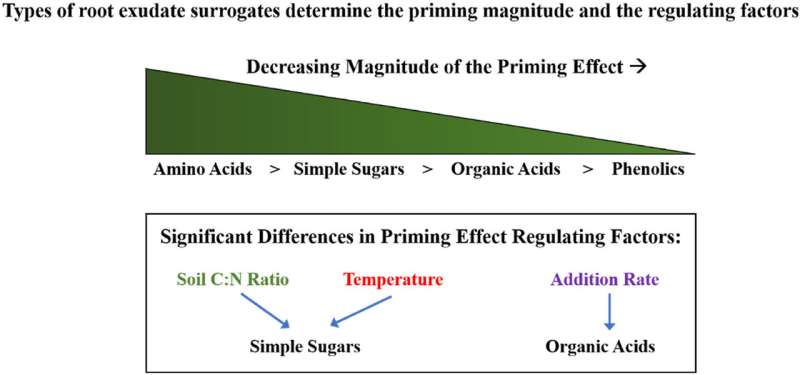This article has been reviewed according to Science X's and . have highlighted the following attributes while ensuring the content's credibility:
fact-checked
trusted source
proofread
Study sheds light on specificity of root exudate types for soil organic carbon decomposition

Soil organic carbon is critical for climate regulation and ecosystem stability. Its decomposition can be significantly influenced by plant root exudates via the priming effect. However, there is still a lack of understanding of how specific compounds of root exudates influence soil carbon decomposition via the priming effect.
In a recent study, researchers led by Wang Peng from the Institute of Applied Ecology of the Chinese Academy of Sciences (CAS) conducted a meta-analysis to investigate general patterns and drivers of root exudate priming effects. The research is published in the journal Soil Biology and Biochemistry.
They found that amino acids induced the highest priming effect followed by simple sugars, low-molecular-weight organic acids and phenolics. The priming effect caused by simple sugars increased but then decreased with soil carbon to nitrogen ratio increasing, and the threshold was at a soil carbon to nitrogen ratio of ~14. The incubation temperature also plays an important role. The low-molecular-weight organic acid-induced priming effect was positively correlated with the addition rate.
"Our new findings highlight that more attention should be paid to the importance of the specificity of root exudate types when evaluating their influence on the priming effect, especially considering that root exudates vary widely in response to environmental changes," said Prof. Wang.
More information: Shaobin Yan et al, Priming effect on soil carbon decomposition by root exudate surrogates: A meta-analysis, Soil Biology and Biochemistry (2023).
Provided by Chinese Academy of Sciences




















